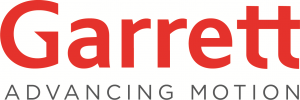Meet the Innovators
1.07.2015Company: Amcham
Ondřej Krajíček, Y Soft Corporation, a.s. and Renata Paceltová, AmCham
As part of AmCham week of Czech Competitiveness, AmCham IT committee in cooperation with Marketing Committee organized a workshop called: MEET THE INNOVATORS, held on June 15, 2015 at Y Soft Corporation, AmCham Patron Member. The workshop has been a follow up on a successful event organized by AmCham HR and IT Committees, Innovate or Die.
Corporations and Startups are culturally very different worlds, yet they can benefit from each other. Startup culture is about sharing experience. Startups are also natural innovators, because that’s their only way how to survise and thrive. Corporations are hoarders of experience, with hiring and managing people, scaling up, running international business, doing marketing and managing corporate governance. We strongly believe that both worlds can benefit from mutual entanglement and that is why we have organized such workshop.
We set a simple objective: to provide startups and corporations an opportunity to meet and establish contacts for further cooperation.
And how we delivered on our objective? At least two of the attending startups are in the process of establishing cooperation with contacts they made during the event.
People (usually founders) from seven startups (alphabetical order): Cryptelo, ImageMetry, MayStay, TeskaLabs, TrendLucid, Unifer and Virgla met with people from AmCham Committees. The workshop was divided into four sessions. Each session had a key topic and 1-2 supervisors from AmCham. The sessions we had were:
- How to find & manage people (supervisors: David Hruska, Pedersen and Partners; Petr Biskup, IBM)
- How to position/market a product (supervisor: Ondřej Peterka, Fleishman-Hillard)
- How to finance business and growth (supervisors: Radek Muška, Deloitte; Juraj Striezenec, Financial Manager of Y Soft Ventures)
- Legal issues related to startups (Stanislav Bednář, DLA Piper)
Each session has been moderated by the supervisors. A short report from each session follows.
How to hire and manage people?
David Hruška, Petr Biskup
Startups were given a short survey beforehand to provide inputs for discussion. The discussion was about several simple tools and how they can be applied.
Team Buildings. Startups usually organize sport activities like laser game, go karting or evening barbeques. Setting expectations is important. These short events are usually seen as networking opportunities whereas emphasis shall be put on spending time together engaged in team activities.
Performance measurement and evaluation. Tough part of business for startups as business is being developed very fast and changes are enormous throughout the year. Best way to set up the goals for fiscal year is to do frequent checks of current status and upgrade the goals accordingly, so overall flexibility from both sides is must.
Hiring strategies. Startups usually use web based channels like linkedin, startupjobs.cz, but it depends on talents they are looking for. Some of them are hiring new employees in universities, some of them are interested in real specialists, but basically seeking talents on the web. Then personal networks, recommendation from friends and colleagues.
Legal issues related to Startups
Stanislav Bednar of DLA Piper
1. Give a thought to the legal format of your startup (independent entrepreneur or one of various types of companies, under which law to be incorporated, etc.);
2. Before sharing your ideas with anybody, including your possible investors, sign a non-disclosure agreement with the other parties;
3. Negotiate with the co-founders and investors of your start-up a reasonable working scheme (i.e. shareholding interest, distribution of rights and obligations, checks and balances within the start-up), which should be implemented in the founding document;
4. Agree with your employees and contractors on reasonable conditions of cooperation, which will ensure that your start-up owns everything created by them at work (no rogue use of others´ intellectual property and know-how, etc.), confidentiality, etc.;
5. Register your intellectual property as soon as possible, if necessary for an efficient protection (patents, trademarks, industrial designs, etc.); and
6. License your product to customers carefully; Avoid giving them sensitive know-how or rights, such as source codes to your software or unlimited license to use your product.
How to Market your product?
Ondrej Peterka, Fleishman-Hillard
Being a startup you already have your product ready, your Big Idea. So half of the marketing is done before you even start. That is good news, right?
As per the rest of it, you most probably will not have enough time or resources for it in the beginning and you might predominantly focus on sales with the intention to get some foothold in the market. That is fully understandable. There are however two marketing points that you should consider:
1) Your customer
2) Your narrative
The customer
It is crucial to have a very clear idea about who your customer is. And I mean really who, not what. So “big companies” is not the right answer here. What issues is he facing, how his KPIs might look like, whom he reports to, what does he read, watch etc. Be as specific as possible. And do not worry much about generalizations, they are perfectly OK and we even have a fancy term for it: “market segmentation”.
The narrative
This should be a simple sentence explaining your goals and offer. It might take following form: “We [do what] for [the customer] by [the benefit of your product]”. One example would be “We provide additional way of communication to marketing directors by opening new geographically specific communication channel”. Or it might look completely different, the only important thing is that you are comfortable with it and it reflects who you are. Once you have you narrative it should be consistently reflected in all communication efforts, both internally and externally. It should be understood and accepted by all you employees, partners, sales representatives and basically anyone who might speak on behalf of your product. And when it comes to marketing efforts, you just take this narrative and pass it through the most efficient communication channels. It is as simple as that.
One last thing, it might be important to remember, that in marketing you are not only selling your product, but your story as well. Some of the customers might not be in it for the product at all, they might be intrigued mostly by your entrepreneurial story. So it is a good idea to get this shaped, ideally by some friendly copywriter and in a form of one concise single page.
How to finance business and growth?
Radek Muška, Deloitte and Juraj Strezienec, Y Soft Ventures
- Forming a business plan is absolutely essential. It forces the entrepreneur to translate his ideas into numbers. Necessary for feasibility assessment and communication with investors.
- Innovation focused companies asset fail to meet pledge requirements
- Accounting standards limit possibilities to capitalize expenses on intangibles, low balance sheets
- Bespoke technology is illiquid from the lender’s perspective
- Debt or equity when possible?
- Debt financing is the cheapest and offers leverage, but impedes capital structure and financial stability.. Startups need dynamics – costs of forgone opportunities are often higher then costs of rebudgeting and (short-term) capital employment from expensive sources. Debts are often linked with covenants loss of flexibility.
- The higher the leverage, the lower the chances to get further financing. Equity financing is more expensive, but sometimes appropriate with respect to middle and long run expansion plans.
- Evaluate benefits of smart money. Good idea should be run with good governance.







